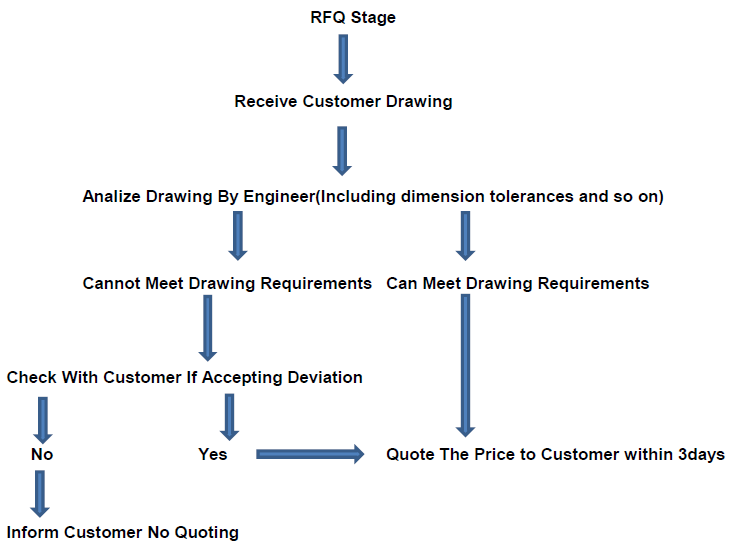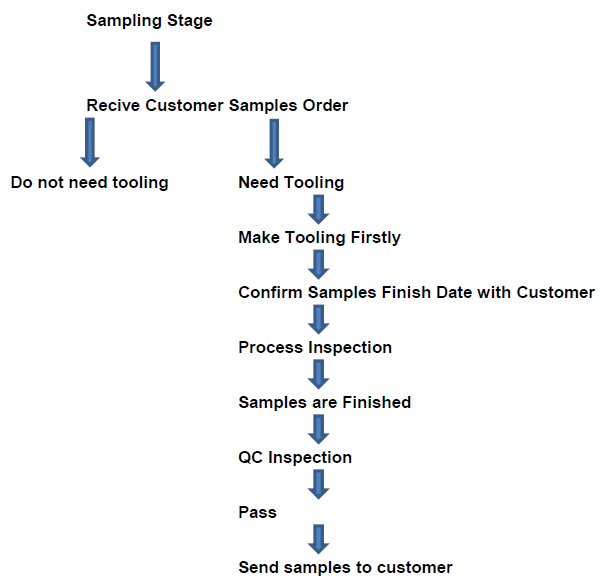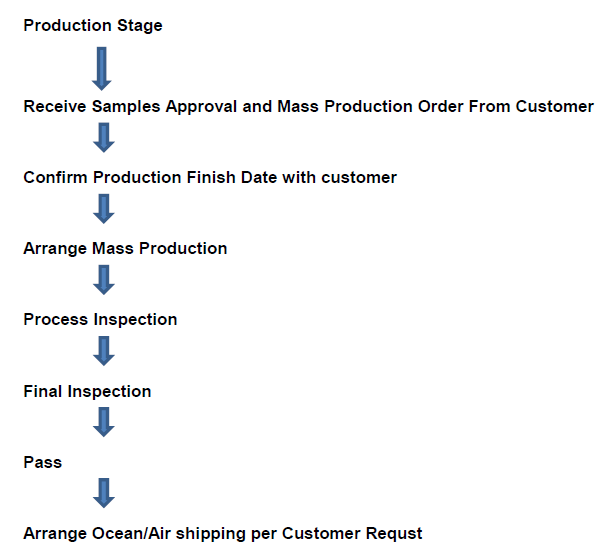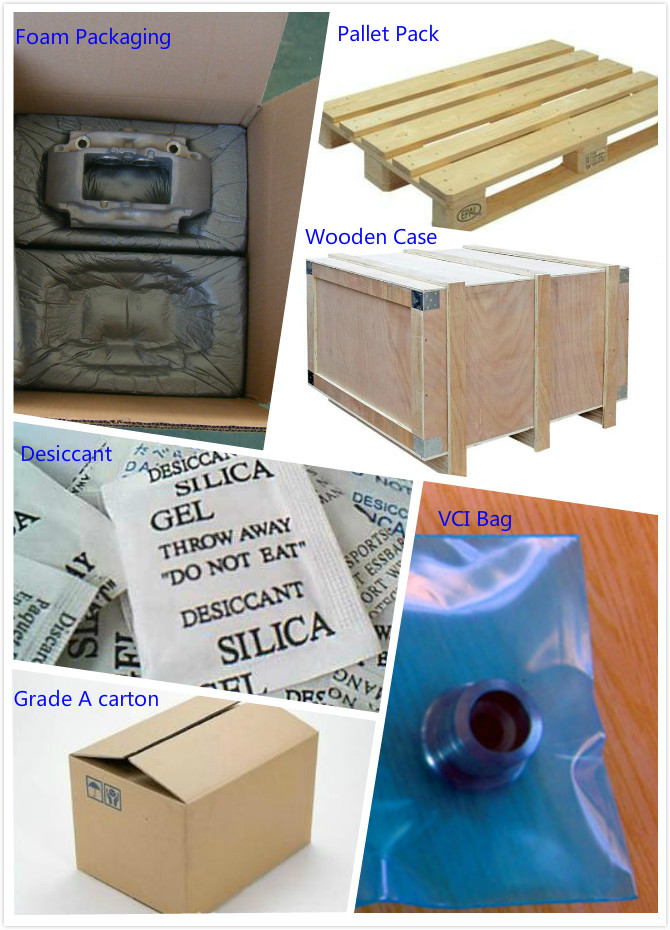We focus on metal custom parts manufacturing, providing stainless steel, aluminum alloy, titanium alloy and other precision machining services. Using CNC turn-milling composite technology, the accuracy is up to ±0.01mm, supporting the customization of complex special-shaped structures. Surface treatment covers anodic oxidation, electroplating and other processes to enhance wear resistance and corrosion resistance. In strict compliance with ISO 9001 standards, we serve the medical, semiconductor, automotive and industrial equipment fields, with fast response, small batch flexible production as the core advantage, enabling high-precision metal parts demand.
Our work process is as bleows:
![RFQ阶段 RFQ阶段]()
![samples阶段 samples阶段]()
![production阶段 production阶段]()
Advantages of Product Customization of CNC Machining Process:
Accurately match the requirements
Design freedom: Through the 5-axis CNC machining, it can manufacture complex surfaces, special-shaped holes or micron precision structures (tolerance ±0.02mm), breaking through the traditional process restrictions.
Material compatibility : Flexible selection of 416 stainless steel, titanium alloy and other special materials, to meet the requirements of high temperature resistance, corrosion resistance or biocompatibility scenarios.
Reduce costs and increase efficiency
Zero mold cost: directly according to the drawing processing, save the mold cost and time (save 30%-70% of the early investment).
Small batch economy : Support 1 piece MOQ , avoid inventory overstocking, especially suitable for prototype verification or niche market products.
Quick response iteration
Agile delivery: With digital programming and flexible production line, samples can be delivered in 5-7 days ** to accelerate the time-to-market.
DFM Collaborative optimization : Engineers intervene in advance to optimize the technicality of drawings and reduce trial and error costs (such as avoiding thin-wall deformation problems).
Quality control
Full process traceability : From raw material certification (such as ASTM standard) to final inspection (CMM test report) to ensure compliance with stringent standards such as ISO 9001/AS9100.
Surface treatment customization: Increase anodizing, nickel plating and other processes as needed to extend part life (such as salt spray test ≥500 hours).
Advantages of technology integration
Cross-process integration : Combine turning, milling and wire cutting to achieve the best "one-stop" processing of complex components , reducing the risk of multi-supplier collaboration.
Product use of Customized CNC Machining Components:
Medical equipment
Implants and tools: Orthopedic screws, endoscopic tubes, surgical forceps, biocompatible materials (e.g. Titanium /316L stainless steel) and sterile processing standards.
Automotive Industry
Power and transmission system: transmission gears, fuel body, ECU housing, suitable for high strength (e.g. 4140 steel) and corrosion resistance (416 stainless steel) requirements.
Electronics and Semiconductor
Precision structural parts : Chip test fixture, radiator, vacuum chamber to ensure nanoscale flatness (Ra≤0.4μm) and electromagnetic shielding performance.
Packaging:
![machining]()
FAQ:
1Q: How long does the production cycle for custom parts take?
1A: Small batch (1-100 pieces) : 5-7 days (including programming, processing, testing).
Complex parts/Special materials : Extended to 10-15 days (need to reserve heat treatment or surface treatment time).
Acceleration option : Expedited fee can be reduced to 3 days (subject to evaluation of process feasibility).---
2Q: How to ensure that the parts meet my design accuracy requirements?
2A: Quality Control Measures :
Equipment support: full size detection, tolerance control within ±0.02mm.
Process specification: ISO 9001 system control, each batch attached test report (including key size data).
Verification Services: Support incoming material reinspection or third-party certification (such as SGS).
3Q: How to calculate the price of custom processing?
3A: Material cost: Calculate the amount according to the drawing specifications.
Process complexity: multi-axis machining time, special tool loss.
Additional Services: Surface treatment (anodizing/nickel plating), testing fees.
Cost Reduction Strategy: Free DFM optimization to reduce machining difficulty (e.g. avoid deep hole/thin wall design).
4Q: Do you support special materials or surface treatments?
4A: Metal: Titanium alloy (TC4), stainless steel (316L/17-4PH), aluminum alloy (7075).
Plastic: PEEK (high temperature resistance), PTFE (corrosion resistance).
Surface Treatment options:
Function : hard anodizing (HV≥500), electroless nickel plating (salt spray resistance ≥500h).
Appearance: sandblasting, mirror polishing (Ra≤0.1μm).
5Q: How to solve the quality problem?
5A: After-sales commitment:
Definition of responsibility: Free rework or rework if defects are caused by processing technology.
Fast response: Solutions are available within 48 hours (e.g. replacement/emergency repair)..
Preventive mechanism: Free First Article Inspection system to reduce batch risks.































